As we prepare to celebrate Black History Month this year, I started gathering the names of persons I wanted to blog about, then I paused. Whenever we address Black History, our conversations brew around slavery and then move to the present day, but what happened before the trafficking of Africans started in the 15th century? What was Africa like before the Trans-Atlantic slave trade? To answer this question, I started reading up on a few African Empires, and there is a wealth of information. This concise piece will summarize a chain of events in Africa before slavery and colonization.
What We Were Not Taught About Africa!
Today I will address the Ghana Empire, and over the next few weeks, I will examine The Mali and Songhai Empires. These wealthy empires existed during the 4th to 16th centuries. In fact, one of the world’s richest men, Mansa Musa, ruled the Mali Empire (1312-1337) and was said to be worth approximately $400B. His wealth is an example of the abundance in Africa before colonization.
Celebrating Black History Month: The Ghana Empire
The Ghana Empire, also known as Wagadou or Awkar, is estimated to have risen to prominence in the 6th century. The Empire lasted until the 12th century; then the Mali Empire later conquered it in 1240. It is believed that the Soninke – a Mande-speaking people – founded the Ghana Empire. The word Ghana meant Warrior King, and this was how the Soninke people referred to their King. The name was then adopted for the region by foreigners, but the Soninke called the region Wagadou.
Celebrating Black History Month: The Trans-Saharan Trade Route
The Soninke belonged to an ancient West African lineage. During the 6th to the 12th centuries, The Ghana Empire was wealthy and powerful due to its access to gold and its strategic geographic location on the Trans-Saharan Trade Route. The Trans-Saharan Trade Route was a trade route that connected West and North Africa. The primary goods traded were gold, ivory, and salt. With the introduction of camels (a suitable animal because it could travel great distances, with a load and required little water) and caravans, the Trans-Saharan Trade Route was a hub of economic activity and growth.
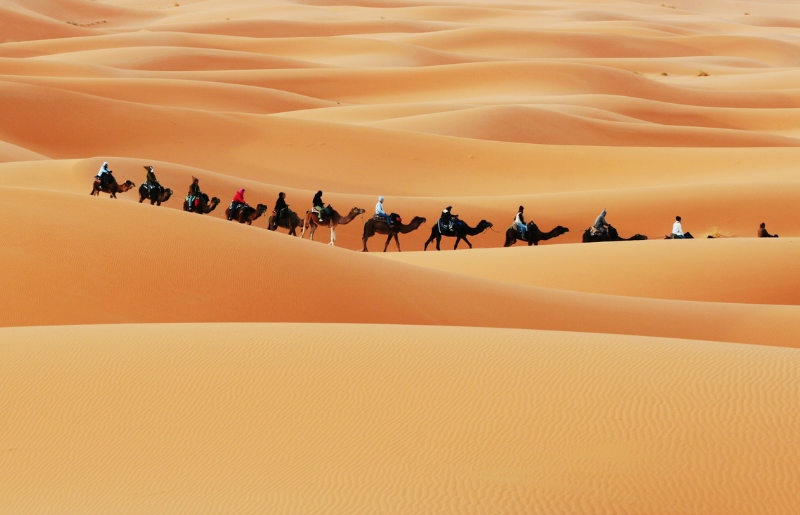
The Ghana Empire Was 3 Times The Size Of Great Britain
The Ghana Empire was located in West Africa, between what is now the countries of Mauritania, Senegal, and Mali. At the height of its dominance, the Empire of Ghana controlled 650,000 square kilometers of land. Notably, that is three times the size of Britain today. The Empire was located south of the Sahara Desert and was mainly savanna grasslands. The Gambia River, Senegal River, and the Niger River were major rivers that served as a means of transportation and trade.
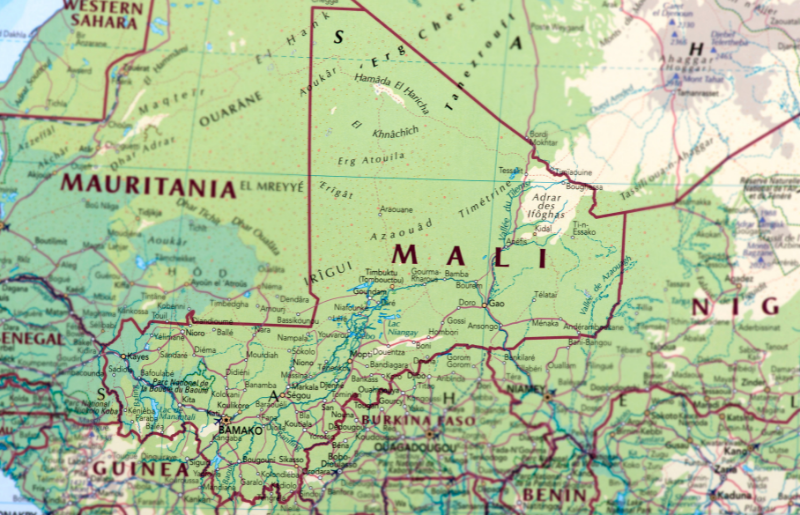
Archaeologists believe the capital city of the Ghana Empire was Koumbi Saleh and estimated the population around 20,000 people. The population was not as large as other cities, but they believe it was quite an achievement considering the harsh Sahara conditions and water scarcity. Archaeologists suggest that such an achievement must have been made possible by engineering and architecture. Reports indicate that the capital city had many wells that provided water for the population and irrigation for the crops.
Land of Gold
During the Trans-Sahara trade route boom, research shows the Ghana Empire had control over three major goldfields. Furthermore, the Empire was called the Land of Gold. The King of Ghana controlled the gold. All gold nuggets found had to be turned over to him. The ordinary people were only allowed to trade the gold dust. That central control over the resource made Ghana a mighty nation.
The Ghana Empire grew richer, and trade increased between 600 and 700 CE when it started trading with the Muslims of Northern Africa and the Middle East. The Empire had expanded its trade to include iron tools, weapons, furniture, textiles, sandals, herbs, spices, fish, rice, honey, and kola nuts. The Ghana Empire used iron to make farming tools and weapons. It was reported the Ghana Empire had a huge army of over 200,000 soldiers and had total control of the Trans-Sahara trade routes by 770 AD. A tax was levied on anyone who wanted to trade with West Africa. In exchange for gold and kola nuts, the Ghana Empire would trade salt and cloth with Morocco. Morocco would then trade with Europe, Asia, and the Middle East.
The Decline of The Ghana Empire
The Ghana Empire declined around 1050 AD. Several factors may have contributed to this decline; firstly, there was an invasion of Muslim conquerors. Secondly, their control of the trade of gold weakened when a group called the Berbers served as competition. Thirdly, constant, erratic attacks from its enemies weakened its economy. There were said to be internal fights among the sub kings that resulted in uprisings which left the Empire in a weakened state. Consequently, this left room for attacks from external forces.
When the Ghana Empire was wielding ultimate power and its wealth and education were known worldwide, Europe was undergoing decline. That decline was due to the fall of the Roman Empire. At the fall of the Ghana Empire, Mali took over and ruled from 1230 to 1600. Theories suggest that some of the Soninke people formed tribal groups and joined with the Almoravids, while others founded the Mali Empire. Around 1050 AD, the Ghana Empire converted to Islam.
In 1957 when the Gold Coast received its Independence from Britain, it was renamed Ghana in honour and remembrance of the Great Empire. This was done under the stewardship of Kwame Nkrumah.
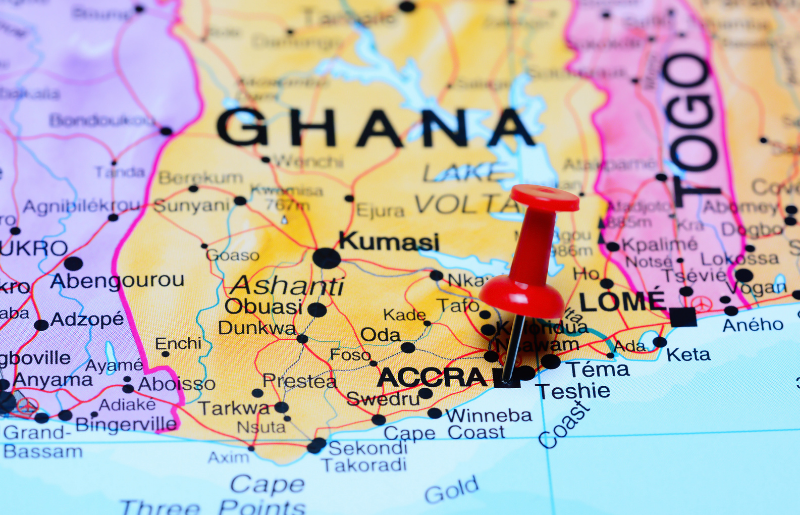
As We Celebrate Black History Month
So as we celebrate Black History Month, let us strive to read more on what existed before the Trans-Atlantic Slave Trade. As poet Mutabaruka said, “Slavery is not African History. It interrupted African History.” We have a wealth of information at our fingertips. These are stories that can assist in changing our narrative.
List of Resources
- https://www.history.com/news/7-influential-african-empires
- https://en.wikipedia.org/wiki/Soninke_people
- https://www.britannica.com/place/Africa
- https://www.khanacademy.org/humanities/big-history-project/agriculture-civilization/first-cities-states/a/the-ghana-empire-1
- https://courses.lumenlearning.com/suny-hccc-worldcivilization/chapter/the-ghana-empire/
- https://oxfordre.com/africanhistory/view/10.1093/acrefore/9780190277734.001.0001/acrefore-9780190277734-e-160
- https://en.wikipedia.org/wiki/Trans-Saharan_trade
- https://flexbooks.ck12.org/user:zxbpc2rzcziwmthaz21hawwuy29t/cbook/world-history-studies_episd/section/4.1/primary/lesson/the-silk-roads-indian-ocean-and-trans-saharan-trade/
- http://solarey.net/empire-ancient-ghana-west-africa/
- https://storymaps.arcgis.com/stories/57ae19421c9c4d80a41ec6ba1160fae5
- https://en.wikipedia.org/wiki/Early_Middle_Ages
- https://www.ducksters.com/history/africa/empire_of_ancient_ghana.php
- https://rightforeducation.org/2017/01/17/short-history-early-ghana-empire/
- https://courses.lumenlearning.com/boundless-worldhistory/chapter/west-african-empires/
- https://face2faceafrica.com/article/the-intriguing-history-of-the-soninke-people-who-founded-the-famous-ghana-empire12
- file:///C:/Users/malai/Downloads/U71The_Ghana_Empire_2015_950L.pdf

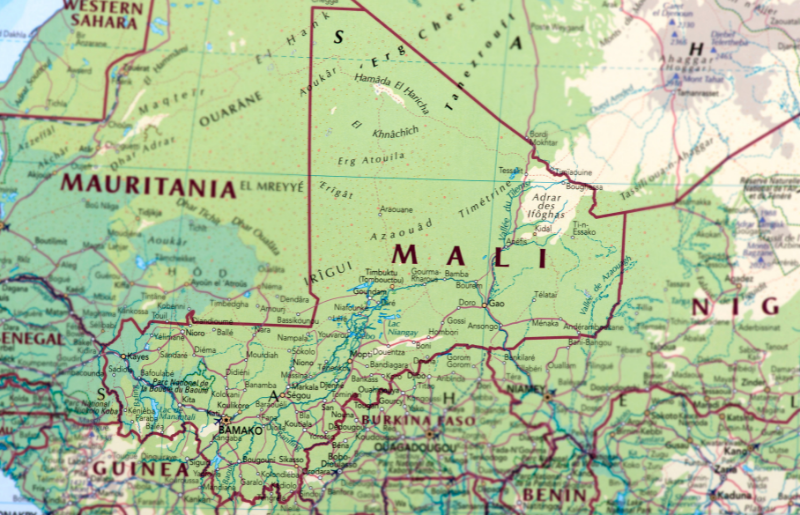
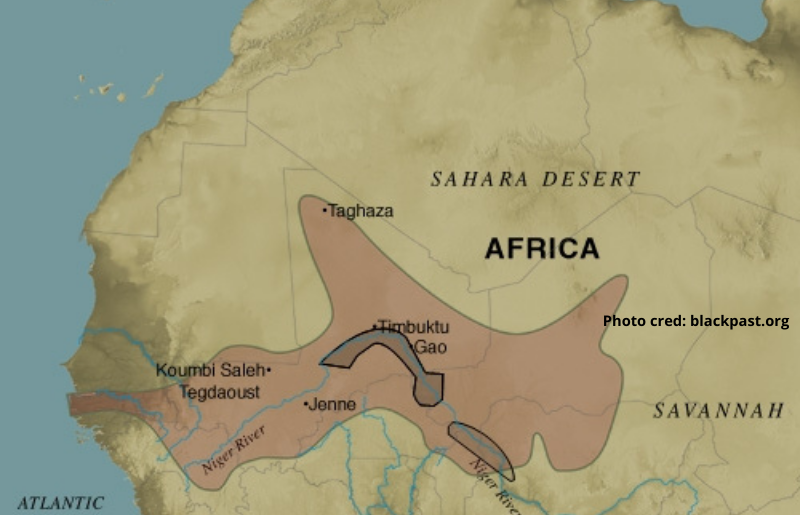
There is so much Black history not covered in our history books: both on the continent of Africa and right here in the United States. I hope that important steps are being made in calling awareness to this issue, and teaching a more balanced view of history.
Indeed, history should encompass the whole picture and not just a tiny part of it.
Wow, what an informational post. You are so right, we were not taught any of this. And what a perfect month to dive into the history of Africa. I might spend some time doing more research this month.
Thank you for reading and your feedback. There is so much to learn. I am a bit of a history nerd so I’m having fun doing the research.
Wow I didn’t realise the empire used to be 3 times the size of the UK. So many things I didn’t know before so thanks for sharing x
Thank you for reading. The empire was huge. It was a learning curve for me.
I can’t agree more with you, we know nothing about Africa and we should!!! I had no idea about Ghana, just amazing!!!!
Thank you.
How interesting! I have to admit I know nothing of the The Ghana Empire so was really good to learn about this thanks for sharing.
You’re welcome, thanks for reading.
It was interesting to read about the gold there. It sounds like they traded in quite a few different things.
Yea the trade route was booming.
so much information here, it is something to know about the history of black celebration.
Thank you.